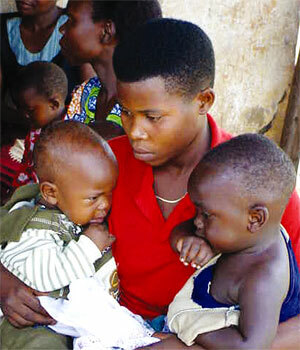Malaria a pain to families
Jacob Odongkara, a peasant and resident of Labigiryang village in Lamwo district, on a normal day was a jovial and energetic 35-year-old man. As a pillar of the family, he always worked hard in the garden to make sure his two wives, eight children and extended family had food on the table.
By Anthony Olwoch
Jacob Odongkara, a peasant and resident of Labigiryang village in Lamwo district, on a normal day was a jovial and energetic 35-year-old man. As a pillar of the family, he always worked hard in the garden to make sure his two wives, eight children and extended family had food on the table.
Although troubled with financial challenges and being unable to provide other basic needs, his resilience brought hope in the home. They believed that one day their fortune would change not until malaria unleashed its ferocious claws and dashed their hopes.
Like many other people across the country, Odongkara was stricken by malaria, a disease that is spread by mosquitoes and is more prevalent during the rainy season. With their home located 15 kilometres away from the nearest health centre and compounded by financial constraints, it was a challenge to transport him for immediate medical attention.
The best they could do was to boil some herbs and administer to him with the hope that he would recover. However, his condition deteriorated by the hour. Out of desperation, they finally decided to carry him on a home-made-stretcher to the health centre.
But unfortunately it was too late for the health workers to save his life. Malaria is a rampant disease in the country that directly and indirectly affects the sufferer and other family members and caregivers respectively, both in rural and urban settings.
As the malaria parasites multiply in the blood stream causing morbidity accompanied by a number of symptoms in the patient, caregivers experience heartache and a number of diverse challenges.
Robert Musoke, a father of three, has had his own share of the malaria inflicted burden. “Quite a number of times, my children have fallen sick when I am financially handicapped. 
Since my income is low and my job does not offer the privilege of having medical insurance, in most cases I have been forced to borrow money from friends and relatives in order to pay medical bills. The shame that comes with being unable to provide basic needs for the family in most instances is demeaning and unbearable,” he explains.
Just like adage that ‘when a problem comes knocking at your door and you say you have no extra sit, it will reply and say ‘I have come with my own stool’, sickness always comes without an invite. For that reason, such emergencies have crippled financial growth of many households.
David Musinguzi a consultant on financial issues says emergencies like sicknesses are one of the leading factors that cause people’s savings to get depleted against their wish. The situation is even aggravated when a member(s) of the family fall sick often or suffer from severe illnesses to the point that they have to be admitted in hospital.
“The largest percentage of our savings has been used to pay medical bills of both our immediate and extended family............ A woman with her children. Children below the five years are the most affected by malaria
...In these tough economic times, sickness is the last thing that should befall a family,” says Rebecca Namusoke, a primary school teacher.
In a bid to minimise costs of medical treatment that include among others, transport to and from the hospitals or health centres, buying drugs, and paying for blood tests (especially in private health facilities), many have resorted to self-medication using overthe- counter drugs. Though superficially it may sound a cheaper option, in most cases it has made matters worse.
Dr. Robert Sidhe a general practitioner at the International health network advises against selfmedication, saying malaria patients end up developing severe complications, which eventually causes them to spend more on treatment and care. For Margaret Achiro, a nurse at Gulu hospital treating complicated malaria is a big challenge, both financially and emotionally.
Her daughter Rosemary developed malaria while in boarding school and was not given immediate and appropriate medical attention. In a couple of days, her daughter developed cerebral malaria which affected the brain. For a whole term, she was not able to resume school.
The cost of treatment and emotional pain negatively impacted on her entire family. Taking care of patients is also a challenge especially for small families.
In some cases, parents or other care takers have been forced to ask for off duty from the workplace especially when a family member is admitted in the hospital. Also, mothers of children under five years of age are usually the most affected.
“Even when my three year old daughter is suffering from non-complicated fevers that can be managed by malaria home care, I am forced to stay home to provide the necessary attention. This has greatly affected my work because she often suffers from malaria,” says Grace Nalukwago an accountant.
The emotional pain and diverse challenges experienced by care givers of malaria patients are undesirable and yet in most cases inevitable. The burden brought about by the challenges faced can only be lifted to a great extent by the fight against malaria.
Thanks to the Roll Back Malaria initiative undertaken by the World Health Organisation that was aimed at halving the 2000 levels of malaria morbidity and mortality by 2010, and reducing the malaria burden by another 50% by 2015.
In a bid to control malaria, a Uganda Malaria Control Strategic Plan has been put in place by the Government to fight malaria in a sustainable manner.